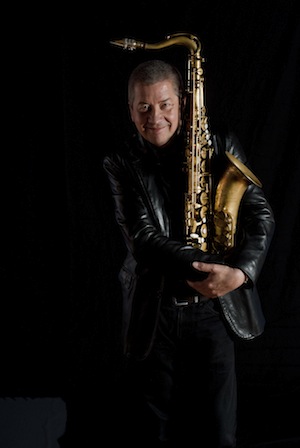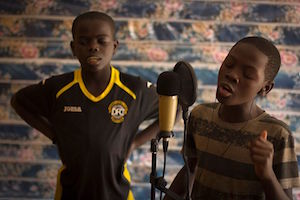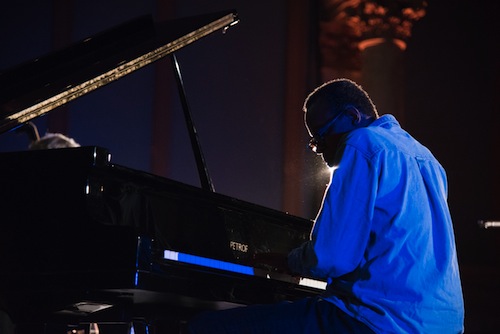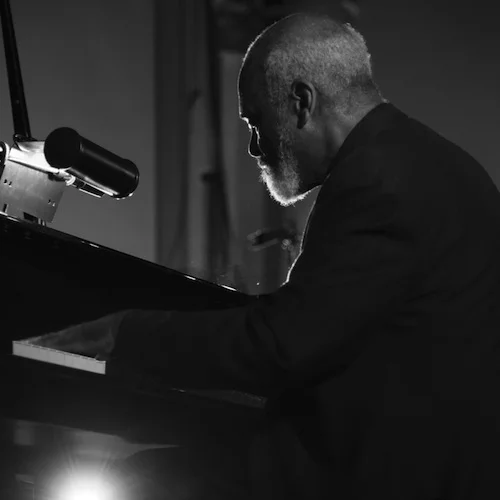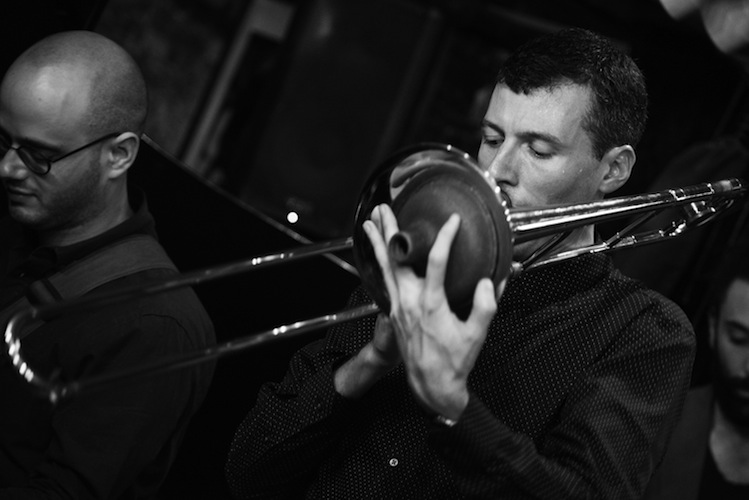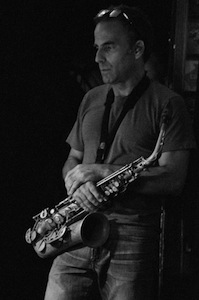By Filipe Freitas
Miguel Zenon, 2018, ©Clara Pereira
Name: Miguel Zenón
Instrument: alto saxophone
Style: Post-bop, Latin jazz
Album Highlights: Looking Forward (Fresh Sound, 2002), Tipico (Miel Music, 2017), Yo Soy La Tradición (Miel Music, 2018)
Filipe Freitas had a phone conversation with Puerto Rican saxophonist Miguel Zenón, a multiple Grammy award-nominee and the recipient of a Guggenheim Fellowship and McArthur Fellowship. In October, he is heading to Angra do Heroísmo in the Azores, Portugal, to play at the 21st AngraJazz Fest.
You are the headliner of this year’s AngraJazz, a festival that occurs from October 3 to 5. I know you’ve been in Portugal on many occasions and even recorded there not long ago with saxophonist Cesar Cardoso, but have you been to the Azores before?
No, I’ve never been there but have many friends who have been. As a matter of fact, we’ve been trying to go to Angra for a few years now, but it never worked out with my schedule; it always coincided with a time when I was busy doing something else, and I’m really happy that it will finally happen.
What does the audience at AngraJazz can expect from you and your quartet?
Hopefully, we'll do music they will enjoy (laughs). A lot of music that we do is strongly connected to my roots and, of course, we incorporate a lot of jazz elements and other things. We’re going to play music from a whole new project focused on music that is coming more from the salsa genre. This new record is coming out in the fall. It’s a kind of look at this very popular dance music from the ’70s from a jazz perspective.
Can we say the performance will work as a sort of a test for this new batch of music?
Yes, in a way. The record comes out in early September and we’re gonna be playing this music in the States before we go to Europe. So, by the time we get there, it’s going to be feeling pretty good.
You’ve been doing a lot for Puerto Rico in many different ways. How often do you play there? Is your program Caravana Cultural still active?
I’m actually in Puerto Rico right now. Caravana Cultural is still active, but we had to put it on hold for a little bit because of the hurricane Maria. After that incident, a lot of things had to stop because the towns are sort of rebuilding, but we hope to do another concert this year. I’ve been spending a lot of time in Puerto Rico this past year as an artist in residence at San Juan Music Conservatory. But the reason I’m here now it’s because I’m playing a concert regarding Yo Soy La Tradición, a project of mine that I recorded recently with a string quartet.
If you had the power, what would you change in the current jazz scene?
I see the current jazz scene as something really great, but one of its problems is connected to jazz education in general. I teach in a couple of schools, so I’m pretty involved in it. Something that’s happening and becoming problematic is that a lot of students are coming out of these schools and there aren’t so many opportunities for them to perform. This situation is making competition among these young musicians kind of impossible because they graduate school and then don’t know what to do. I mean, I don’t really know the solution for this, but if I could change something, I would set up some kind of platform to make the transition easier for these young musicians. Maybe 30 or 40 years ago, if you’re at school or you move to New York or elsewhere, there were working bands with gigs to help you pay your rent, but that’s hard now.
Who influenced you the most as a musician?
As a jazz musician, Charlie Parker was my biggest influence. He sort of opened my eyes to jazz and until today I still see him as the epitome of excellence.
On your website, you point out movies and books as other personal interests. From what you’ve been watching and reading recently, what do you recommend?
I saw a great movie called Generation Wealth. I don’t really watch a lot of documentaries but this one was really impressive, focusing on the way people look at prosperity in the modern world. In terms of books, one of my favorite writers is this guy from Chile, Roberto Bolaño, who became legendary after he passed away. I read a lot of his things, but the most recent was a book of his complete short stories.
If not a musician, what would you have been?
When I was younger, attending school in Puerto Rico, I was really interested in natural sciences. Math and physics really attracted me. As a matter of fact, when I decided to pursue a career of music I was already enrolled in the engineering school in Puerto Rico. That was definitely the road I was following at that point.
Tells us a bit more about this new album you’re releasing soon and any other project you are involved in at the moment.
This new album that we’ve just finished is called Sonero and, as I said, it’s a tribute to salsa music, specifically to this Puerto Rican musician called Ismael Rivera. A lot of his music will be featured on the record. But I’m also working on a couple of commissions for next year and a couple of other things for smaller groups. On top of that, I’m just trying to get out there! (laughs)




